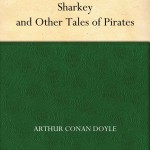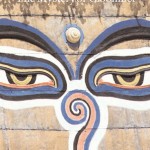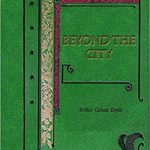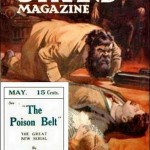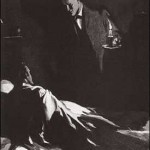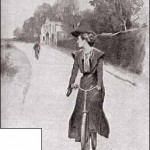Up to this point the proceedings of the modern highwayman might have passed as gentle. Now they turned in an instant to savagery. The chauffeur, a burly, capable fellow, incited by that raucous voice behind him, sprang from the car and seized the advancing robber by the throat. The latter hit out with the butt-end of his pistol, and the man dropped groaning on the road. Stepping over his prostrate body the adventurer pulled open the door, seized the stout occupant savagely by the ear, and dragged him bellowing on the highway. Then, very deliberately, he struck him twice across the face with his open hand. The blows rang out like pistol-shots in the silence of the night. The fat traveller turned a ghastly colour and fell back half senseless against the side of the limousine. The robber dragged open his coat, wrenched away the heavy gold watch-chain with all that it held, plucked out the great diamond pin that sparkled in the black satin tie, dragged off four rings—not one of which could have cost less than three figures—and finally tore from his inner pocket a bulky leather notebook. All this property he transferred to his own black overcoat, and added to it the man’s pearl cuff-links, and even the golden stud which held his collar. Having made sure that there was nothing else to take, the robber flashed his lantern upon the prostrate chauffeur, and satisfied himself that he was stunned and not dead. Then, returning to the master, he proceeded very deliberately to tear all his clothes from his body with a ferocious energy which set his victim whimpering and writhing in imminent expectation of murder.
Whatever the tormentor’s intention may have been, it was very effectually frustrated. A sound made him turn his head, and there, no very great distance off, were the lights of a car coming swiftly from the north. Such a car must have already passed the wreckage which this pirate had left behind him. It was following his track with a deliberate purpose, and might be crammed with every county constable of the district.
The adventurer had no time to lose. He darted from his bedraggled victim, sprang into his own seat, and with his foot on the accelerator shot swiftly off down the road. Some way down there was a narrow side lane, and into this the fugitive turned, cracking on his high speed and leaving a good five miles between him and any pursuer before he ventured to stop. Then, in a quiet corner, he counted over his booty of the evening—the paltry plunder of Mr. Ronald Barker, the rather better-furnished purses of the actresses, which contained four pounds between them, and, finally, the gorgeous jewellery and well-filled notebook of the plutocrat upon the Daimler. Five notes of fifty pounds, four of ten, fifteen sovereigns, and a number of valuable papers made up a most noble haul. It was clearly enough for one night’s work. The adventurer replaced all his ill-gotten gains in his pocket, and, lighting a cigarette, set forth upon his way with the air of a man who has no further care upon his mind.
It was on the Monday morning following upon this eventful evening that Sir Henry Hailworthy, of Walcot Old Place, having finished his breakfast in a leisurely fashion, strolled down to his study with the intention of writing a few letters before setting forth to take his place upon the county bench. Sir Henry was a Deputy-Lieutenant of the county; he was a baronet of ancient blood; he was a magistrate of ten years’ standing; and he was famous above all as the breeder of many a good horse and the most desperate rider in all the Weald country. A tall, upstanding man, with a strong clean-shaven face, heavy black eyebrows, and a square, resolute jaw, he was one whom it was better to call friend than foe. Though nearly fifty years of age, he bore no sign of having passed his youth, save that Nature, in one of her freakish moods, had planted one little feather of white hair above his right ear, making the rest of his thick black curls the darker by contrast. He was in thoughtful mood this morning, for having lit his pipe he sat at his desk with his blank note-paper in front of him, lost in a deep reverie.
Suddenly his thoughts were brought back to the present. From behind the laurels of the curving drive there came a low, clanking sound, which swelled into the clatter and jingle of an ancient car. Then from round the corner there swung an old-fashioned Wolseley, with a fresh-complexioned, yellow-moustached young man at the wheel. Sir Henry sprang to his feet at the sight, and then sat down once more. He rose again as a minute later the footman announced Mr. Ronald Barker. It was an early visit, but Barker was Sir Henry’s intimate friend. As each was a fine shot, horseman, and billiard-player, there was much in common between the two men, and the younger (and poorer) was in the habit of spending at least two evenings a week at Walcot Old Place. Therefore, Sir Henry advanced cordially with outstretched hand to welcome him.
“You’re an early bird this morning,” said he. “What’s up? If you are going over to Lewes we could motor together.”
But the younger man’s demeanour was peculiar and ungracious. He disregarded the hand which was held out to him, and he stood pulling at his own long moustache and staring with troubled, questioning eyes at the county magistrate.
“Well, what’s the matter?” asked the latter.
Still the young man did not speak. He was clearly on the edge of an interview which he found it most difficult to open. His host grew impatient.
“You don’t seem yourself this morning. What on earth is the matter? Anything upset you?”
“Yes,” said Ronald Barker, with emphasis.
“What has?”
“You have.”
Sir Henry smiled. “Sit down, my dear fellow. If you have any grievance against me, let me hear it.”
Barker sat down. He seemed to be gathering himself for a reproach. When it did come it was like a bullet from a gun.
“Why did you rob me last night?”
The magistrate was a man of iron nerve. He showed neither surprise nor resentment. Not a muscle twitched upon his calm, set face.
“Why do you say that I robbed you last night?”
“A big, tall fellow in a motor-car stopped me on the Mayfield road. He poked a pistol in my face and took my purse and my watch. Sir Henry, that man was you.”
The magistrate smiled.
“Am I the only big, tall man in the district? Am I the only man with a motor-car?”
“Do you think I couldn’t tell a Rolls-Royce when I see it—I, who spend half my life on a car and the other half under it? Who has a Rolls-Royce about here except you?”
“My dear Barker, don’t you think that such a modern highwayman as you describe would be more likely to operate outside his own district? How many hundred Rolls-Royces are there in the South of England?”
“No, it won’t do, Sir Henry—it won’t do! Even your voice, though you sunk it a few notes, was familiar enough to me. But hang it, man! What did you do it for? That’s what gets over me. That you should stick up me, one of your closest friends, a man that worked himself to the bone when you stood for the division—and all for the sake of a Brummagem watch and a few shillings—is simply incredible.”
“Simply incredible,” repeated the magistrate, with a smile.

